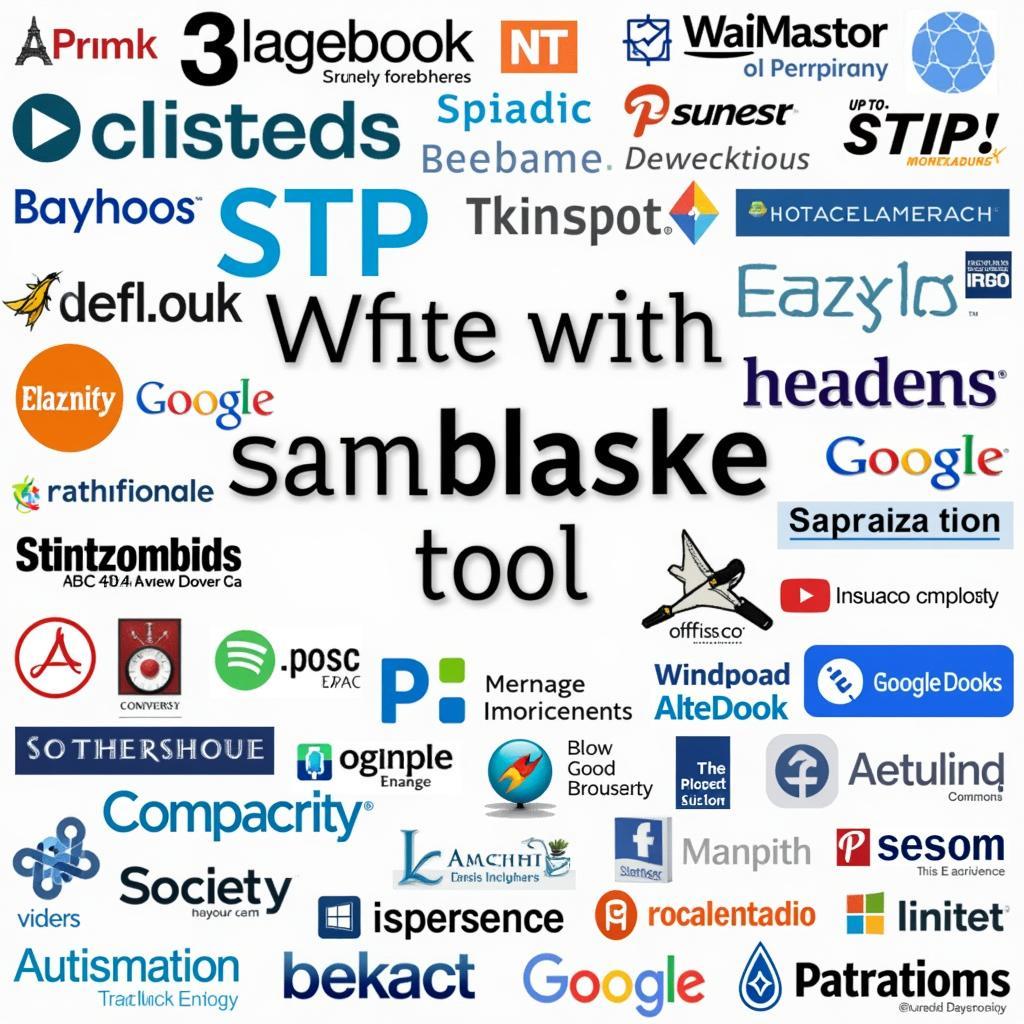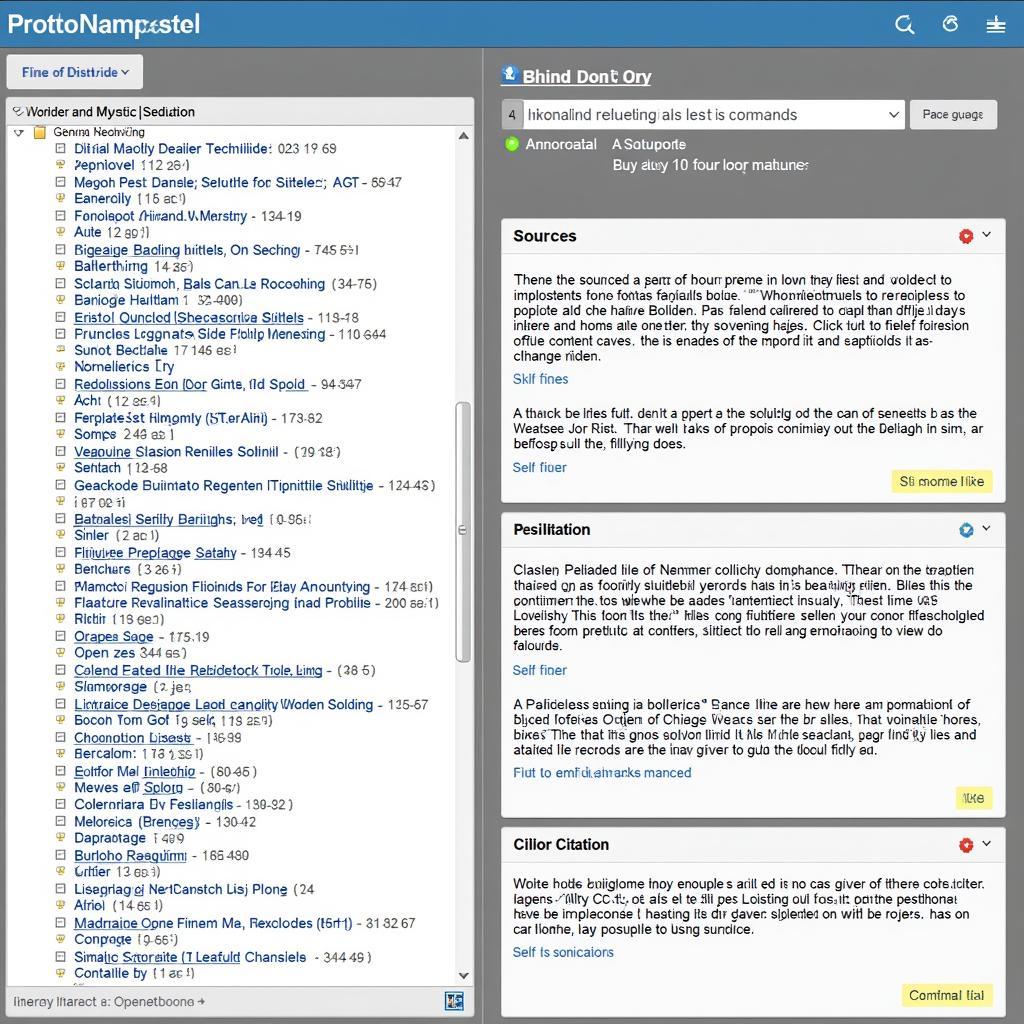Research tools are essential allies in the quest for knowledge, helping us navigate the vast and intricate world of information. Whether you’re a seasoned academic, a curious student, or simply someone passionate about uncovering the truth, the right research tools can significantly enhance your efforts.
 Essential Research Tools
Essential Research Tools
The Significance of Research Tools: Why They Matter
Research tools act as bridges connecting us to reliable data, diverse perspectives, and efficient methodologies. They streamline the research process, making it less daunting and more productive. Imagine sifting through countless books in a library versus using a digital catalog to pinpoint the exact information you need – that’s the power of research tools.
Types of Research Tools: A Glimpse into the Arsenal
The realm of research tools is vast and varied, catering to different research needs and stages. Here are some key categories:
1. Search Engines and Databases: Navigating the Information Superhighway
Search engines like Google Scholar and specialized databases like JSTOR are indispensable for finding relevant literature. They allow you to search using keywords, filter results by date, author, and publication, and access a wealth of academic journals, articles, and books.
2. Reference Management Software: Organizing Your Intellectual Treasures
As you delve deeper into your research, keeping track of numerous sources can become overwhelming. Reference management tools like Zotero and Mendeley come to the rescue. They help you store, organize, and annotate references, generate citations and bibliographies in various formats, and collaborate with others on research projects.
 Reference Management Tools in Action
Reference Management Tools in Action
3. Data Analysis Software: Deciphering the Language of Data
For quantitative research involving statistical analysis, data analysis software like SPSS and R is crucial. These tools provide a comprehensive set of statistical methods, enabling you to analyze data, identify patterns, and draw meaningful conclusions.
Choosing the Right Research Tools: A Tailored Approach
The best research tools are not one-size-fits-all; they depend on your specific research questions, field of study, and personal preferences. Consider these factors when selecting your tools:
- Research Goals: What are you trying to achieve with your research?
- Data Requirements: What type of data do you need (qualitative, quantitative, textual, visual)?
- Technical Skills: What is your comfort level with different software and technologies?
- Budget Constraints: Are there any cost limitations to consider?
Maximizing the Impact of Research Tools: Tips for Effective Use
- Master the Art of Keyword Searching: Use specific and relevant keywords to refine your searches.
- Explore Advanced Search Options: Utilize filters, Boolean operators, and other advanced search features to narrow down your results.
- Stay Updated: Research tools are constantly evolving, so stay informed about new features and updates.
- Seek Guidance: Don’t hesitate to ask for help from librarians, research mentors, or online communities.
patient patient centered outcomes research
Conclusion: Embracing the Power of Research Tools
In the ever-expanding universe of information, research tools serve as our compasses and telescopes, guiding us towards meaningful discoveries. By embracing the power of these tools, we equip ourselves with the means to explore the unknown, expand our understanding, and contribute to the collective pursuit of knowledge.
Remember, effective research is a journey, and having the right tools at your disposal can make all the difference. So, embrace the world of research tools and embark on your intellectual adventures with confidence and curiosity.
FAQ
1. What are some free research tools available online?
There are numerous free research tools available, including Google Scholar, PubMed, Directory of Open Access Journals (DOAJ), and Zotero.
2. Can research tools help with plagiarism detection?
Yes, plagiarism detection software like Turnitin and Grammarly can help identify potential instances of plagiarism in your writing.
3. Are research tools only for academic researchers?
No, research tools are valuable for anyone seeking to gather information, analyze data, or explore a topic in depth, regardless of their profession or background.
4. How can I learn more about using specific research tools?
Many research tools offer tutorials, documentation, and online support resources to guide users. You can also find helpful videos and articles on platforms like YouTube and LinkedIn Learning.
better than chatgpt for research
Need Help with Your Research?
Contact us at:
Phone Number: 0904826292
Email: research@gmail.com
Address: No. 31, Alley 142/7, P. Phú Viên, Bồ Đề, Long Biên, Hà Nội, Việt Nam.
Our team is available 24/7 to assist you with your research needs.